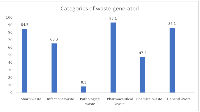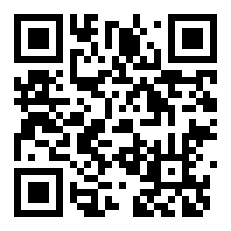Assessment of Healthcare Waste Management Practices of Community Pharmacists in Jos Metropolis
DOI:
https://doi.org/10.51412/psnnjp.2024.11Keywords:
Healthcare Waste, Medical Waste, Waste Management, Waste Segregation, Community Pharmacies, Jos MetropolisAbstract
Background: Proper management of healthcare waste (HCW) is of great concern because of potential public health risks and damage to the environment associated with such waste. The distinct categories of HCW are sharps wastes, infectious wastes, pharmaceutical wastes, such as cytotoxic wastes, hazardous chemical wastes, radioactive wastes, and non-hazardous general wastes. Amajority of Nigerian community pharmacies generate most of the categories of HCW by their mode of practice informing the need to evaluate their knowledge of the different categories of HCW and their HCW handling and disposal practices. The study aimed to evaluate the knowledge of the different categories of HCWgenerated within the community pharmacies and their HCWdisposal practices.
Methods: Across-section of 100 registered community pharmacists in Jos metropolis handling HCW was administered a structured questionnaire. The questionnaire was structured according to WHO guidelines on the safe management of HCWs to assess their knowledge of the different categories of HCWs generated within their premises and the HCW handling practices. Data were coded and abstracted into a Microsoft Excel spreadsheet for simple descriptive and inferential analysis.
Results: Atotal of 72 respondents completed the questionnaires giving a 72% recovery rate. Many of the respondents 52 (72.2%) were aware of the different categories of HCW, while 20 (27.7%) were unable to correctly identify the different categories of HCW. 73.6 % stated having a procedure for handling the waste generated and 95.8 % were aware that HCW should be segregated from general wastes. However, the handling and disposal of HCW was done by 63.9 %. From the study, 31.9% of the respondents reported the disposal of sharp waste in safety boxes while 25% used closed waste bins, open burning (38.9%) and disposal with general wastes (22.2%). However, only 5.6 % of the respondents were aware of the colour coding system of HCW.
Conclusion:The results suggest that the respondents have a high knowledge of the different categories of HCW but lower waste-handling practices. To prevent exposing their workers and the public to potential health risks, it is recommended that the healthcare sector needs more training for the proper management of healthcare waste associated with the products and services they provide.
References
Prüss-Ustün A, Rapiti E, Hutin Y. Estimation of the global burden of disease attributable to contaminated sharps injuries among health-care workers. Am J Ind Med. 2005 Dec;48(6):482-90. doi: 10.1002/ajim.20230. PMID: 16299710.
Rutala WA, Mayhall CG. Medical waste. Infect Control Hosp Epidemiol. 1992 Jan;13(1):38-48. doi: 10.1086/646421. PMID: 1545111.
Safe management of wastes from health-care activities. Edited by Chartier Y, Emmanuel J, Pieper U, Prüss A, Rushbrook P, Stringer R,
nd Townend W, Wilburn S, Zghondi R 2014. 2 ed. World Health Organization.https://www.int/publications/item/97892415485
Gyawali S, Rathore DS, Adhikari K, Shankar PR, K C VK, Basnet S. Pharmacy practice and injection use in community pharmacies in
Pokhara city, Western Nepal. BMC Health Serv Res. 2014 Apr 28;14:190. doi: 10.1186/1472-6963-14-190. PMID: 24774195; PMCID: PMC4101856. 5. National Healthcare Waste Management Plan. National Health - Care Waste ManagementPlanNHCWMP.2014.https://document1.worldbank.org/curated/en/164291468110.
Longe EO, Williams AR. “A preliminary study of medical waste management in Lagos metropolis, Nigeria. Iran J. Environ Health Sci Eng. 32006; 133-139. http://ijehse.tums.ac.ir/index.php/ijehse/article/view/82
Thakur V, Ramesh A. Healthcare waste management research: A structured analysis view (2005-2014). Waste Manag Res., 2015 Oct;33
(10):855-70. doi: 10.1177/0734242X15594248. Epub 2015 Aug 12. PMID: 26268601.
. https://www.worldbank.org/en/topic/urbandevelopment/brief/solid-waste-management.
Oyekale AS, Oyekale TO. Healthcare waste management practices and safety indicators in Nigeria. BMC public health. 2017 Dec;17:1-3.
https://doi.org/10.1186/s12889-017-4794-6.
Tobin EA, Ediagbonya TF, Asogun DA, Oteri AJ. Assessment of healthcare waste management practices in primary health care facilities in a Lassa Fever Endemic Local Government Area of Edo state, Nigeria. Afrimedic Journal. 2013;4(2):16-23.
Lanyuy GD, Jane FA, Wilfred FM. Medical waste management and disposal practices of health facilities in Kumbo East and Kumbo West health districts. IJMMS. 2017 Jan 31;9(1):1-1.
Tong AY, Peake BM, Braund R. Disposal practices for unused medications around the world. Environ Int. 2011 Jan 1;37(1):292-8.
Bamgboye AO, Hassan IA, Adebisi YA, Farayola RO, Uwizeyimana T. Towards improving community pharmacy-based mental health
services in Nigeria. J Pharm Policy Pract. 2021 THENIGERIANJOURNALOFPHARMACY| VOL. 58,ISSUE (1)2024 Page | 110Apr 7;14(1):34. doi: 10.1186/s40545-021-00316-9.
Okafor UG, Oyawole MR, Sawyer IB, Obiakor NM, Akinboro TO, Titilayo AO. Pharmaceutical waste management in community pharmacies in Lagos State, Nigeria. West African Journal of Pharmacy. 2022;33(2):116-28.
Kharaba Z, Khasawneh LQ, Aloum L, Ghemrawi R, Jirjees F, Al Bataineh N, Al-Azayzih A, Ali Buabeid M, Zain Al-Abdin S, Alfoteih Y. An
assessment of the current practice of community pharmacists for the disposal of medication waste in the United Arab Emirates: A deep analysis at a glance. Saudi Pharm J. 2022 Dec;30(12):1773-1780. doi: 10.1016/j.jsps.2022.10.006. Epub 2022 Oct 15.
Paut Kusturica M, Tomas A, Sabo A. Disposal of Unused Drugs: Knowledge and Behavior Among People Around the World. Rev Environ Contam Toxicol. 2017; 240: 71 - 104. doi: 10.1007/398_2016_3.
Oladimeji-Salami JA, Lawal FT, Ajasa O, Afolayan GO, Akindele AJ, Olayemi SO, Adeyemi OO. Evaluation of knowledge and
practice of pharmaceutical waste disposal in hospitals and pharmacies within Lagos State, Nigeria. Nigerian Quarterly Journal of Hospital
Medicine. 2017;27(2):749-57.
Dzekashu L, Akoachere J, Mbacham W. Pharmaceutical Waste Management Practices in Pharmacies and Medicine Stores: Evidence from Bamenda Health District, Cameroon. Eur J Health Sci. 2021 Nov 16; 6(4): 14 - 32. DOI:10.47672/ejhs.846.
Khobragade DS. Health care waste: Avoiding hazards to living and non-living environment by efficient management. Fortune J Health Sci. 2019;2(2):14-29.

Downloads
Views | PDF Downloads:
421
/ 237
Published
How to Cite
Issue
Section
License
Copyright (c) 2024 The Nigerian Journal of Pharmacy

This work is licensed under a Creative Commons Attribution-NonCommercial 4.0 International License.


